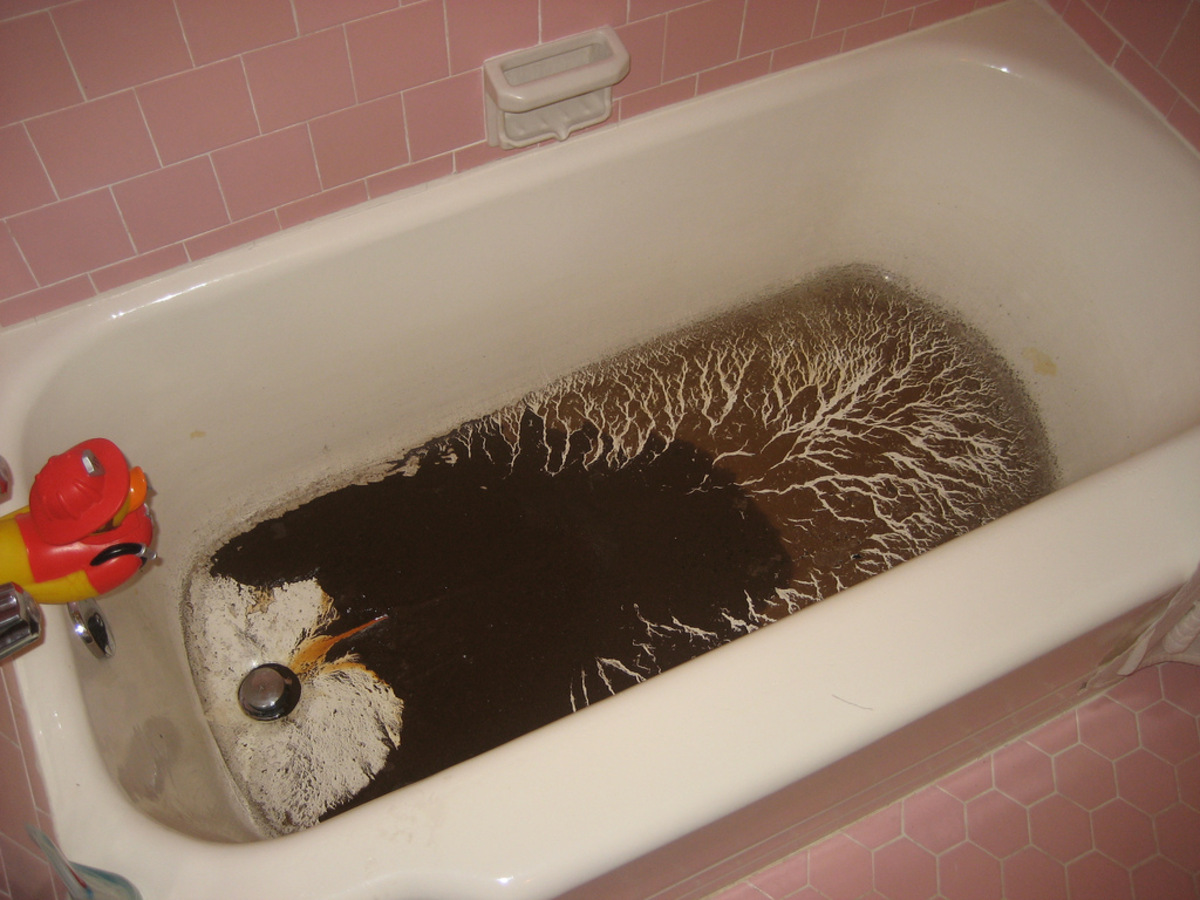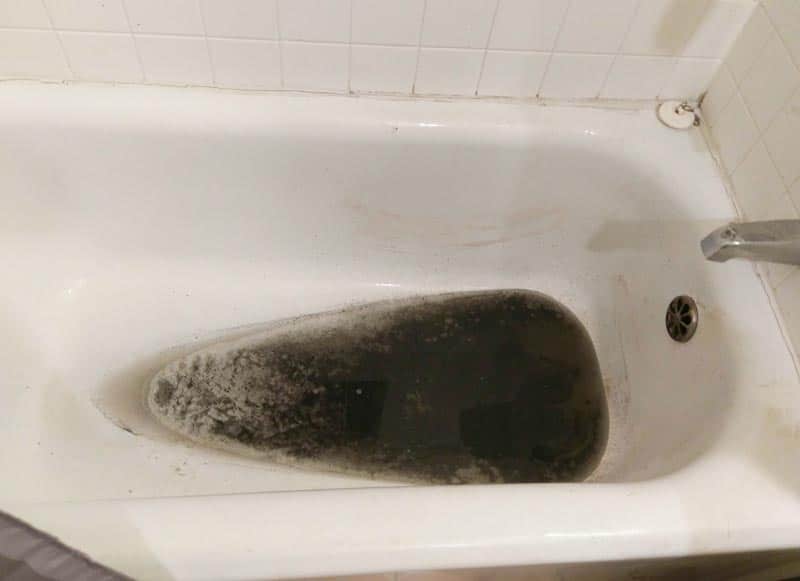Essential Factors Behind Discharge in the Bathtub
Essential Factors Behind Discharge in the Bathtub
Blog Article
Were you trying to locate know-how concerning Water Coming up Bathtub Drain?

Sewer backup in the tub can be a distressing and unhygienic trouble for any house owner. Not just is it troublesome, but it additionally presents serious health risks and shows underlying issues with the plumbing system. Comprehending why sewage is coming up with the bath tub is essential for taking appropriate activity to deal with the trouble successfully.
Introduction to the Problem
Typical Reasons for Sewer Backup
Clogs in the Drain Line
One of one of the most typical causes of sewage back-up is a clog in the sewer line. This can happen due to the build-up of particles, oil, or foreign things in the pipes, preventing appropriate circulation and triggering sewage to support right into your tub.
Tree Root Invasion
Tree origins looking for wetness and nutrients can infiltrate sewer lines via tiny splits or joints. Over time, these roots can grow and broaden, creating substantial damage to the pipes and resulting in sewer back-up issues.
Recognizing the Problem
When sewer starts backing up into the tub, it's a clear sign of a problem with the drainage system. The wastewater that must be streaming far from your home is instead discovering its back right into your space, which can cause substantial damage and health hazards.
Possible Reasons
Numerous aspects can contribute to sewer back-up in the bath tub. From clogs in the sewage system line to problems with the plumbing infrastructure, identifying the source is essential for discovering an option.
Aging Infrastructure
Older homes may have outdated plumbing systems that are much more susceptible to corrosion, fractures, and degeneration. As pipes age, they come to be a lot more susceptible to leaks and obstructions, boosting the chance of sewage backup cases.
Heavy Rainfall or Flooding
Throughout durations of heavy rainfall or flooding, the sewer system might end up being overloaded with excess water, creating backups and overflows. This can lead to sewage supporting into bath tubs and other components inside the home.
Indications of Sewer Back-up
Foul Odors
Unpleasant odors emanating from drains or fixtures, particularly in the restroom, might suggest sewage backup issues. These odors are often solid and consistent, signifying an issue that calls for prompt attention.
Slow Draining Fixtures
Bath tubs, sinks, and bathrooms that drain slowly or not whatsoever could be experiencing sewer backup. If numerous components are impacted simultaneously, it's most likely that the issue stems from an usual point, such as the primary sewer line.
Gurgling Noises
Strange gurgling or bubbling sounds coming from drains pipes when water is running elsewhere in your home are a sign of air entraped in the plumbing system. This air accumulation can result from sewer back-up and ought to be checked out without delay.
Health And Wellness Dangers Associated with Sewer Back-up
Contamination of Water
Sewage backup can infect the water in your home, presenting a severe health and wellness threat to you and your family. Direct exposure to infected water can cause intestinal issues, skin infections, and various other ailments.
Mold and mildew Growth
Wetness from sewer back-up can produce excellent conditions for mold growth in your house. Mold spores can exacerbate respiratory system issues and create allergic reactions in delicate individuals, making prompt clean-up important.
Spread of Disease
Sewer consists of damaging bacteria, viruses, and bloodsuckers that can cause a variety of illness, including liver disease, cholera, and gastroenteritis. Entering contact with sewer or polluted surfaces puts you at risk of infection.
Tidying up After Sewer Backup
Disinfection Procedures
Completely decontaminate and sterilize affected areas after sewage back-up to remove dangerous microorganisms and protect against mold growth. Use ideal cleansing products and safety equipment to guarantee risk-free and effective cleaning.
Remediation of Influenced Areas
Repair any kind of damages to flooring, walls, or fixtures triggered by sewage back-up. Depending on the degree of the damage, you may need to replace carpeting, drywall, or various other materials to recover your home to its pre-loss condition.
Immediate Actions to Take
Turning Off Supply Of Water
In the event of sewer backup, it's necessary to switch off the water supply to avoid further contamination and damages. Locate the major water shutoff valve in your home and shut it off up until the issue can be fixed.
Speaking To a Specialist Plumber
Taking care of sewer backup is not a do it yourself task. Get in touch with a certified plumber with experience in taking care of sewage-related problems to analyze the situation and perform necessary repair services or clean-ups.
Preventing Contact with Contaminated Water
Till the sewer backup is resolved, avoid contact with polluted water to prevent the spread of germs and virus. Put on protective gear if you must be in the afflicted location and clean your hands extensively afterward.
Preventive Measures
Routine Maintenance of Sewage System Lines
Arrange routine evaluations and upkeep of your sewer lines to determine and address prospective issues prior to they escalate right into major troubles. This can consist of cleaning out particles, checking for tree origin breach, and repairing any type of broken pipelines.
Installing Backwater Valves
Take into consideration installing bayou valves in your plumbing system to prevent sewage from receding into your home throughout durations of heavy rainfall or flooding. These valves immediately close when water draws back up, protecting your residential property from contamination.
Appropriate Disposal of Family Waste
Prevent purging anything aside from bathroom tissue and human waste down the bathroom to avoid obstructions and obstructions in the drain line. Dispose of oil, oil, and other house chemicals correctly to decrease the threat of plumbing troubles.
Why Is Water Backing Up in My Bathtub When I Flush My Toilet?
What to do about a sewer line clog
First, don’t bother with plunging. No amount of plunging will dislodge the clog in a sewer line. The clog is too far away. Plungers are for clogs in the toilet itself, not the sewer line. Plus, the most likely causes of a sewer clog are:
Tree roots Flushed toys or feminine products Grease buildup Those items don’t move easily. And in the case of tree roots, the roots need to be cut out of the pipe and the pipe will need to be repaired.
You’ll need a closet auger. A closet auger is a type of plumber’s snake with a protective cover to keep from scratching the delicate porcelain toilet. If the clog is further down, you may need to remove the toilet or use one of your cleanouts to get to the clog.
We also recommend doing a video inspection of the drain to ensure that the cause of the clog has been completely removed. Otherwise, you could have the same problem again in a few days or weeks.
https://mspplumbingheatingair.com/blog/why-is-water-backing-up-in-my-bathtub-when-i-flush-my-toilet

I'm very curious about Why sewage is coming up through your bathtub and I'm hoping you appreciated the entire post. Loved our post? Please share it. Help someone else discover it. Thank-you for your time invested reading it.
Call Today
Report this page